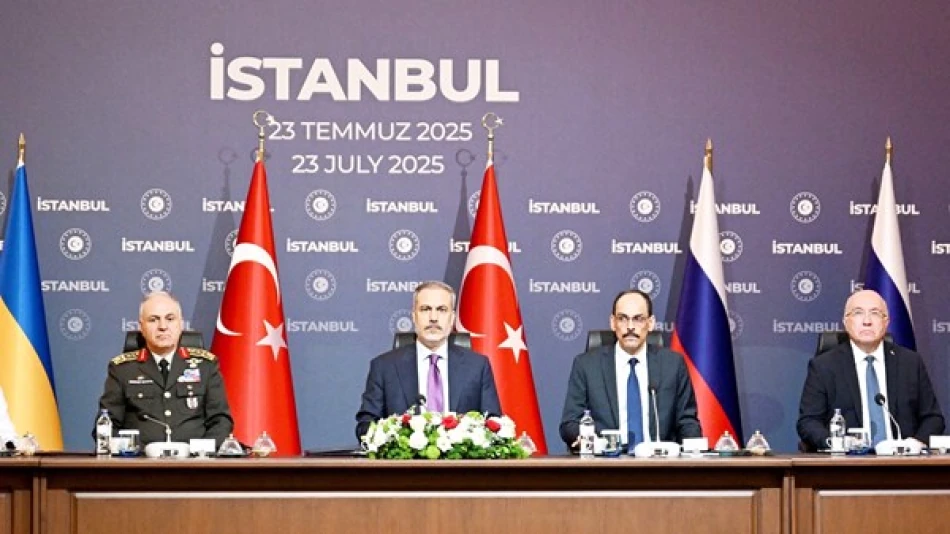
Russia and Ukraine Conclude Peace Talks in Istanbul: A Pivotal Moment Amid Ongoing Conflict
Russia-Ukraine Prisoner Exchange Talks in Istanbul Yield Limited Progress Amid Stalled Peace Efforts
Russia and Ukraine concluded their third round of peace negotiations in Istanbul after less than an hour of discussions, achieving only a narrow agreement on additional prisoner exchanges while failing to establish a framework for broader diplomatic engagement. The brief talks underscore the persistent challenges in finding common ground as military operations continue to escalate on both sides.
Brief Talks Focus on Humanitarian Issues
According to sources familiar with the negotiations, the Istanbul meeting resulted in an agreement to conduct additional exchanges of military and civilian prisoners of war. However, the parties could not reach consensus on scheduling future rounds of talks specifically dedicated to this humanitarian file.
The extremely short duration of the talks—less than 60 minutes—suggests fundamental disagreements remain between the negotiating teams, despite Turkey's continued mediation efforts to establish effective communication channels.
Turkey's Strategic Role as Mediator
Turkey's position as host reflects its unique diplomatic leverage with both Moscow and Kyiv. Unlike previous failed mediation attempts by other nations, Turkey maintains working relationships with both sides and has successfully facilitated grain export agreements in the past. President Erdogan's government views successful mediation as a way to enhance Turkey's regional influence and demonstrate its value to both NATO allies and Russia.
Istanbul's selection as a venue also carries symbolic weight—the city has historically served as a bridge between Europe and Asia, making it a natural choice for East-West diplomatic initiatives.
Limited Scope Reflects Deeper Stalemate
The focus on prisoner exchanges, while humanitarian in nature, represents the lowest common denominator for dialogue between the warring parties. Both sides have political incentives to secure the release of their captured personnel, making such agreements more achievable than broader territorial or security discussions.
Historical Context of Prisoner Negotiations
Prisoner exchanges have often served as confidence-building measures in protracted conflicts. During the Korean War, prisoner repatriation talks continued even as broader peace negotiations stalled. Similarly, Israel and Palestinian groups have conducted prisoner swaps despite ongoing political deadlock.
However, the inability to schedule follow-up talks suggests even this limited cooperation may be fragile. Previous rounds of Russia-Ukraine negotiations in Belarus and other venues have similarly produced minimal concrete results.
Implications for Future Diplomatic Efforts
The brief nature of these talks likely reflects each side's assessment that military developments on the ground will ultimately determine negotiating positions more than diplomatic engagement. Both Russia and Ukraine appear to be prioritizing battlefield gains over compromise at the negotiating table.
For international observers and allies providing military aid, the lack of substantive progress reinforces arguments that continued military support remains necessary to eventually bring about serious negotiations. The pattern suggests that meaningful peace talks may only emerge when one side faces clear military setbacks or domestic pressure to end the conflict.
Most Viewed News

 Layla Al Mansoori
Layla Al Mansoori






